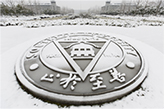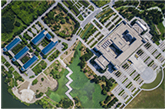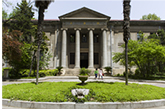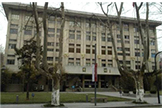[Southeast University News Network, November 22] (Reporter: Dong Xuan) On November 22, the Chinese Academy of Sciences issued the “Announcement on the the List of Academicians Elected by the Chinese Academy of Sciences in 2019”, and announced the addition of 64 Chinese nationals and 20 foreign experts in 2019. The number of newly elected academicians of the CAS of SEU ranked fourth among universities nationwide. Prof. Duan Jin, from the School of Architecture, and Prof. Cui Tiejun, from the School of Information Science and Engineering of SEU, were elected academicians of the Chinese Academy of Sciences. Among them, Prof. Duan Jin was elected as an academician of the Ministry of Technology and Science, and Prof. Cui Tiejun was elected as an academician of the Ministry of Information Technology.
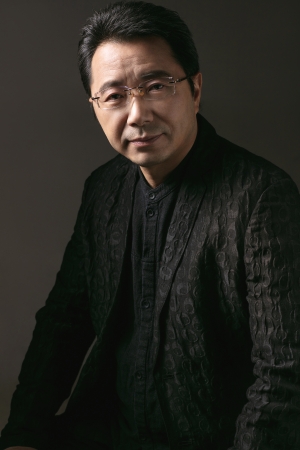
Duan Jin, a professor from the School of Architecture of SEU, PhDsupervisor, the first member of the Urban and Rural Planning Discipline Review Group of the Academic Degrees Committee of the State Council, the first Chinese member of the International Space Syntax Academic Steering Committee, and he was awarded as the “National Engineering Survey and Design Master” by the Ministry of Housing and Urban-Rural Development in 2016. He was also appointed as the chief expert of “Xiong’an New Area Planning Technical Guide”.
Duan Jin has been engaged in urban planning design and theoretical research for more than 30 years. He expanded the theory of urban space development, proposed “space genes” and created analytical and inherited techniques to better solve the problems of natural environment destruction and historical cultural disruption in contemporary urban construction. It has been successfully applied in major projects such as Xiong’an New Area, Suzhou Ancient City, Nanjing 2014 Youth Olympic Games, and extensive protection of ancient city and new district construction.
He hasfinished 12 monographs in the name of the first author and published 111 papers. He won 26 international and national planning and design awards as the first winner, including 3 national first prizes for excellent planning and design, “Award for Excellence” of the ISOCARP, “the Best Urban Design Award” of the Leading European Architects Forum (LEAF), and Honorary nomination ofARCASIA awards for Architecture, etc. He won the first prize of the provincial and ministerial level scientific and technological progress award. Three works were selected for the International 100-year Urban Design Tour.
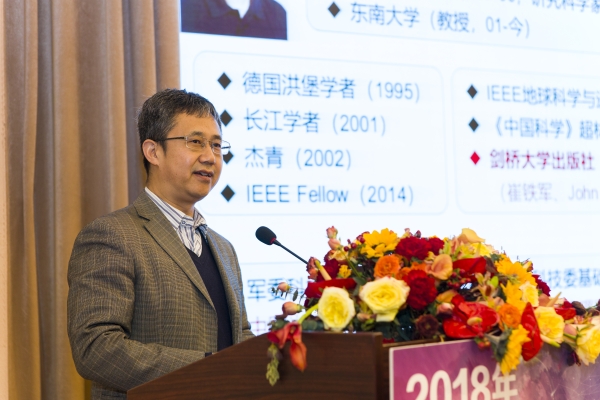
Cui Tiejun, Professor and PhD Supervisor from School of Information Science and Engineering of SEU, Yangtze River scholars Distinguished Professor of the Ministry of Education, and he was awarded the National Outstanding Youth Science Fund in 2003.
Cui Tiejun conducted systematic research on metamaterials, and creatively proposed new ideas for using digital codes to characterize metamaterials and new methods for controlling electromagnetic waves, which realized digital coding and programmable metamaterials, and could manipulate electromagnetic waves and coded information in real time. It marks the New directions for information metamaterials. He first studied the surface plasmon polariton (SPP) metamaterial from the perspective of microwave transmission lines, and invented an ultra-thin, flexible, stripe SPP transmission line. Compared with traditional microstrip lines, its transmission characteristics can be customized, and the mutual coupling and interference between transmission lines can be significantly reduced. He has developed a series of SPP passive devices and active devices, opening up a new direction of microwave technology based on SPP transmission lines. In the field of traditional metamaterials, fast and accurate design of broadband and low-loss metamaterials has been achieved. It is the first international experiment to verify physical phenomena such as “electromagnetic black holes” and three-dimensional broadband “stealth cloaks”, which solves the application of metamaterials in certain defense applications, which solves the bottleneck problem of metamaterials in some defense applications and is used in the development of weapons and equipment in China's aerospace, aviation and shipbuilding sectors.
He has published more than 400 related papers in Science, Nature journals, the Proceedings of the National Academy of Sciences, and PRL and published 3 monographs. His papers have been cited by SCI more than 10,000 times, and he has authorized 63 national invention patents. As the first finisher, he won the Second Prize of National Natural Science in 2014, the Second Prize of National Natural Science in 2018, the First Prize of Scientific and Technological Progress in the Army in 2016, and the First Prize of Natural Science of the Ministry of Education in 2011.
(Editor-in-charge: Zhai Mengjie, reviewed by: Song Xiaoyan)








